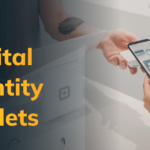Technology that is changing the B2B sector – digital customer onboarding

Digital identity wallet – European Union project and commercial solutions
03/08/2023
How do we ensure that the end customer is not afraid of open banking and digital identity verification?
24/08/2023Table of contents
- Difficult beginnings when collaborating with businesses
- Technology changes everything
- Technology partners are making life easier for companies
- Digital onboarding - meaning less chance of error
- Leaders reach for PSD2 solutions and artificial intelligence
- An intelligent solution, fully automatic and using information from external databases
- How it works in practice
Difficult beginnings when collaborating with businesses
It's 2023 and many companies still can't get over business stereotypes that were born in the previous century, in an era that didn't know about the internet, mobile phones and artificial intelligence. One such anachronism is the still lingering belief that acquiring, verifying and registering, or so-called. business customer onboarding is a complicated, long and cumbersome process. Also that it requires face-to-face contact and the provision of various certificates, statements and other documents. All this documentation must be carefully checked, entered into systems and verified, with due diligence and with various institutions.
The more significant the services provided by our company, the more detailed and labour-intensive the onboarding of a business customer. Financial institutions, banks, lenders and players in other regulated sectors (such as telecommunications or energy) have struggled for years with the cost of manual and operationally risky business customer onboarding.
Technology changes everything
Thanks to technology, the analysis of company data required for secure onboarding can look very different. In a digital world of phones smarter than 20th-century supercomputers, biometrics, big data and artificial intelligence, old problems are getting new solutions.
Recently, the whole world has switched to dealing with even the most complex business issues online, compelled by the new reality of the coronavirus pandemic. Process automation has changed and improved countless business processes.
Technology partners are making life easier for companies
It is no surprise, then, that B2B companies are intensively seeking new solutions for onboarding their customers. They want to use the right technologies to increase the efficiency and effectiveness of acquiring new customers, reduce the risk of error and eliminate repetitive manual activities that do not create significant value. As a result, they want to reduce the costs of this key business process.
In their search, they turn to technology partners that specialise in confirming a customer's identity, checking their financial situation, registration data and potential for future cooperation. Today, the cumbersome and costly manual process of registering a corporate customer can be replaced by digital KYB ‘know your business’.Properly implemented KYB builds business value by appropriately vetting partners and identifying the best customers, and eliminating dishonest and unstable companies even before cooperation begins.
Digital onboarding - meaning less chance of error
KYB automation is a sought-after service by players operating in B2B models, especially in sectors that require precise and reliable partner verification. Every year brings new developments and opportunities in this area. The dynamic development of technology means that only a few solutions available on the market are flexible enough, versatile enough and at the same time guarantee the best use of data analytics.
If we add the fact that B2B onboarding should be possible without physical contact between company representatives (online and during a single KYB session), the list of products that fully meet these criteria turns out to be very limited.
Leaders reach for PSD2 solutions and artificial intelligence
Leaders of digital, remote onboarding are making effective use of all available business entity databases. They offer multiple options for verifying a company representative's identity and supporting documents, as well as making extensive use of new, secure technologies. These include biometrics and instant integration with proprietary document systems, untrustworthy debtors, false and suspicious email addresses and fake, non-existent bank accounts.
An intelligent solution, fully automatic and using information from external databases
The most advanced providers of such services, such as Digital Gateways and AIS Gateway, use the European PSD2 regulation to provide an assessment of a customer's financial credibility through open banking mechanisms. This solution has another feature that sets it apart from the competition: the use of machine learning and AI, or artificial intelligence, in the analysis of corporate customer data. This allows multidirectional analysis of the available data in real-time.
As a result, the remote B2B onboarding offered by Digital Gateways is devoid of the risk of delay, error and other human errors associated with traditional KYB processes that normally require the involvement of sales or administrative staff.

How it works in practice
In practice, KYB using Digital Gateways solutions takes no more than ten minutes. It is a fully remote, paperless process and convenient for the client, who can go through the entire onboarding process on the screen of their smartphone. During this time, intelligent systems perform a full verification of the company's authenticity, identity and reliability and confirm the identity of the representative. The verification of the customer is indeed very thorough and multi-directional. The system automatically accesses all relevant external databases to effectively assess the business situation and financial credibility of the potential customer. Digital Gateways uses databases like:
- BIK,
- BIG,
- Bisnode,
- CRIF,
- ERIF,
- KRS,
- REGON,
- CEIDG.
Unsurprisingly, this type of solution is most readily used by the most advanced companies operating in the financial and telecommunications sectors.




